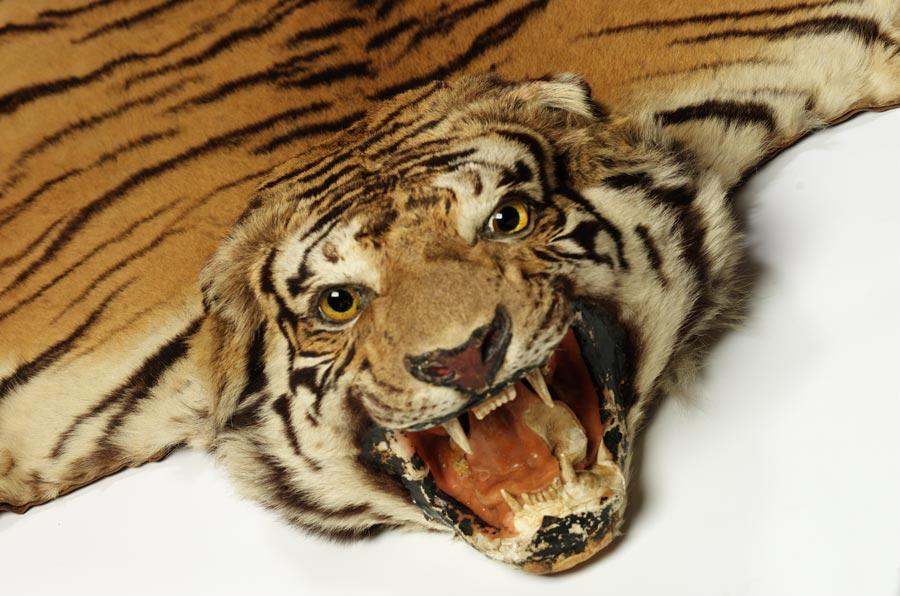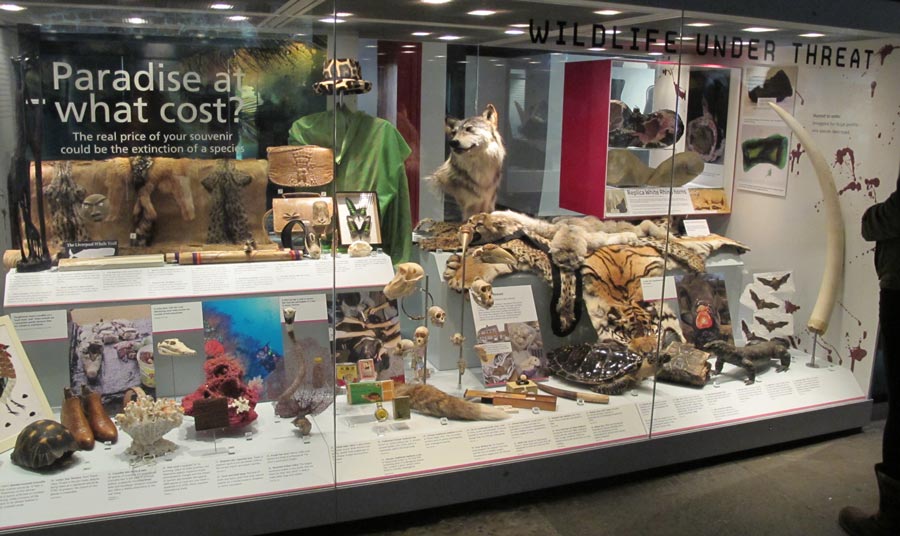The Tiger King and the reality of the big cat trade

Carole Baskin. Joe Exotic. If these names don’t instantly jump out at you, you’ve probably not seen the docu-series Tiger King.
Tiger King covers the strange and outlandish world of big cat breeders and the egos within. For some Tiger King may be the first time you’ve really thought about the exotic pet trade. Unfortunately, the show focuses more on the people involved than the animals themselves, but it does touch on animal welfare and the controversy of big cat breeding in the US.
CITES
Joe Maldonado-Passage is now in prison due to the killing of five tigers and illegally selling tigers across US state lines. The exotic pet trade laws in the US are different to the UK. However, both the US and the UK are party to CITES which is an international treaty to ensure trade in wildlife is sustainable and will not cause species to go extinct in the wild. Whenever an endangered big cat is moved across a national border, alive or dead, it requires a CITES permit.
Here at the Seized! gallery at Merseyside Maritime Museum we have many big cat skins on display in our CITES display case, pictured below. We display cheetah, jaguar, bobcat and tiger skins all of which were seized and some from trophy hunters. Our most recent acquisition is a lion skin seized from Manchester airport following a hunter's trip to South Africa. All of these skins have been seized due to a breech in CITES permitting.

Imported large cats in the US
From 2014 to 2018, 176 live lions and tigers were imported into the US - all of which were destined for zoos, circuses and personal collections. The majority of these big cats are imported from Russia and South Africa. If you recall from the show, lions and tigers can produce around four to six cubs per year. Breeders often remove cubs from their mother as soon as they are born. Captive lions and tigers only have limited economic use to people such as Joe who use animals as a tourist attraction. After eight to twelve weeks, the cubs become too big and risky to be used in this way. Tiger and lions can live up to 25 to 30 years and require expensive care for the remainder of their lives. As Joe mentioned, there is no real market in the US for adult lions and tigers as they bring very little economic gain to the owners.
Despite this, the US is still one of the biggest importers of big cats in the world, with many breeders claiming they are helping conservation. It is very unlikely that the average breeder will release their big cats into the wild. Even if they did, suitable habitat with enough prey would be needed. Years and years of dependency on humans means these animals have little chance of survival in the wild.
These captive lions and tigers have more mixed gene pools as they are bred amongst animals from different areas in the world. Lions and tigers in the wild would very rarely cross paths with different subspecies meaning their gene pools are smaller and distinctly different. Releasing the likes of Joe’s big cats into the wild could actually be devastating for wild populations - just like the mixing of domestic and wild cat populations in Scotland. Their genetic make up means no zoos or major conservation projects would use the likes of Joe’s and Carole’s animals for their breeding programmes.
Protecting exotic species
Although internationally there are many sad stories about the wildlife trade, Border Force here in the UK do everything they can to ensure the trade in animals is legal, legitimate and the welfare of the animal is a key consideration. Heathrow airport has an animal reception centre where all exotic species are examined if they are travelling via the UK. From cheetahs to fish, arachnids and reptiles, the Heathrow facility is equipped to deal with just about every animal.
The CITES Border Force officers also act as a knowledge resource about international law and can inform both colleagues and traders about which species are protected. These Border Force officers actively contribute towards conservation by helping to ensure species don’t go extinct in the wild by enforcing CITES and EU wildlife regulations. In some instances, such as the extremely rare San Salvador Rock Iguana, Border Force seized twelve live specimen from a passenger and returned them to the wild in their native Bahamas.
Conservation is a very well thought out practice and by abiding by the laws around wildlife you can support species survival. For me, the best part of Tiger King was Joe’s closing statement. It was very poignant and I urge you to think about it if you would like to own an exotic pet yourself.
Joe is talking about the transport of two chimpanzees kept in isolation in his zoo, to a better kept facility where the chimps were housed together.
"Are the animals happy? Who the hell knows?... They sat in cages next to each other for ten years... and [within two days] they were hugging each other. Did I deprive them of that for ten years? Yep... I deprived them of being chimpanzees. Did I do it on purpose? No, I was wrapped up in having a zoo."
